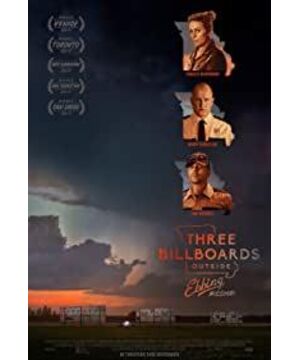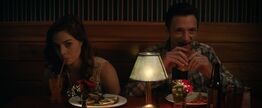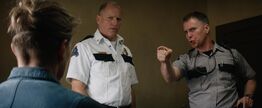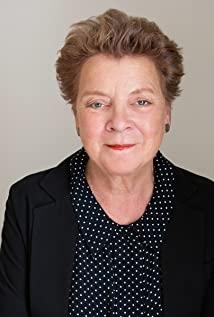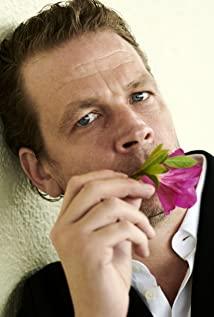Author: A.
Transferred from my own public account; Introduction to insomnia
This time last year happened to be a very confusing period (although I have always been very confused. At that time, I also reached a bottleneck in my school life, and living in the school had nothing to say. Also, everything was very confusing at that time. Make myself unhappy. I must confess that my situation at the time made me more unbalanced and sensitive, but I didn’t admit it or show it, and my own inner dissatisfaction would be secretly transferred to others.
This time last year happened to be a very confusing period (although I have always been very confused. At that time, I also reached a bottleneck in my school life, and living in the school had nothing to say. Also, everything was very confusing at that time. Make myself unhappy. I must confess that my situation at the time made me more unbalanced and sensitive, but I didn’t admit it or show it, and my own inner dissatisfaction would be secretly transferred to others.
So whenever there is a vacation, I will go back to China, even if it is a one-week vacation. As a result, when I returned to China, there was nothing substantial to do, and my friends also took a vacation. When I go home, I feel empty, lonely, cold, and uncomfortable with jet lag, and I can't find a reason to go out. Later, I was really bored and took a soul, but I didn't get anyone I could chat with.
One night, I couldn’t stay at home anymore, what should I do first? Let’s start a movie and watch the movie at that time, and I don’t really want to watch it. There was a burst and silence that I really wanted to watch, but I was afraid that I would go home after watching it and not be able to sleep, so I saw a three billboards that were very late, and that was the scene. At that time, a lot of people recommended their movie, but after reading the introduction, the heroine thought it must be an Oscar routine, and it was extremely politically correct. But there's nothing to do, let's see. I hurriedly took a shower and went to Indigo near my home, and sat down.
At the beginning of the movie, it was a big highway. At this time, the legendary "Sister Cohen" appeared on this desolate highway with a car accompanied by a water ballad, and the audio-visual effects were good. Seeing that a man suddenly came in with a helmet in his hand, he also hurriedly sat down.
The movie goes straight to the point, and the title "Billboard" appears next to the road at the beginning, and the image of the heroine is not unexpected: the appearance and movements are very capable, but the face is haggard. I drive an old car on the road. Running is a bit bleak.
Then the next scene is "Sister Cohen" going to the advertising company to rent a billboard. From the conversation between her and the company's brother, they once again verified that the heroine is a "single tumor" in this southern town.
The little brother of the advertising agency (Caleb Landry Jones) is very impressed by the actor's looks. He is from Texas and recently filmed a "Friday Kids" first film festival.
Seeing this, I feel that the heroine's role has been well created. Although "maverick" is nothing new in petitioning mothers, I still like it very much.
It might be in line with the situation at the time. I was living in a boarding school at the time, and I lived in a small community. The living environment is very limited, there are few people, and everything you do is seen in the eyes of others, and you can't do anything "out of the ordinary". So I feel that I have been suppressed by the environment, and I feel a little uncomfortable.
The heroine went to the town to send her son to school, but was scolded by her son's classmates, and the heroine fought back fiercely with her fists.
Later, even the priest with the "highest moral status" in the town came to look for the heroine, and the heroine taught the priest verbally and resolutely. The heroine accuses the priest of standing on a moral high ground but not doing the right thing.
Seeing this, my heart was even more excited, and I silently applauded for this film. And I feel that this movie is not actually about how petitioning mothers pursue "justice", but a big slap in the face of mainstream American thinking. Anyone who knows American culture knows that some topics in the United States are very sensitive: race, gender, and religion . And now the mainstream thinking in the United States is the so-called American-style "political correctness" which requires equality of race, gender, religion, and many Christian taboos, such as abortion, must not appear in mainstream film and television works . In this movie set in a small southern town, the people of the town are very traditional, and most of them are Christians, and they are very strict about "immoral behavior" or " right and wrong behavior". Impossible to happen. In fact, these townspeople are the epitome of the mainstream ideology of the democrats in the United States . The role of the heroine violated mainstream practices as soon as she came up, offended black people (saying the "N" word), priests and slapped religion. Such a role is the epitome of the left in American society .
However, later, the heroine finally had a head-to-head confrontation with the sheriff (Woody Harrelson). Although the hero asked for face, the heroine was still unforgiving. Later, the sheriff's good buddy and colleague Dixon (Sam Clovel) was about to "blow out" for him, but the sheriff kept letting him compromise. ADDED: There was a previous scene where Dixon was gay.
At first, I was disgusted with the character Dixon, who not only has conservative ideas like the people in the town, but also has no skills but is violent and rude. Just beat up a black man in town the other day with no punishment.
Sam Rockwell plays Dixon. He saw his movie "Uncle Mower" when he was a child. It is also a movie that reflects the thinking of American leftists. He was very impressed and liked it very much.
Then talk about the plot, and then after the sheriff really died, Dixon crippled the little brother of the advertising company in a fit of anger. The long shot in this section has a big impact, and with the soundtrack, it is one of my favorite scenes in the movie
The good times didn't last long, the white power situation finally ended, a new black sheriff took over, and Dixon was fired a few days later and went home with his mother.
Then the heroine also took revenge and burned the police station. At this time, Dixon also happened to see the letter written by the sheriff to him in the bureau, and suddenly touched the softest part of his heart. As an LGBT person, he has been in this Christian (anti-gay) dominant for many years It is not easy for a small town to survive. She has always used "violence and rudeness" to package herself and the heroine as the weakness of minority people. But I didn't expect that I was accidentally burned in Dixon.
The story behind the scenes is not specific. . . . . .
Probably a suspect appeared in the town, and Dixon also had an obvious character growth, ready to take action for justice. He was revoked from his position and wanted to arrest the suspect but was beaten, and the heroine finally walked with Dixon. "The Road to Pursuit".
Let’s talk about the plot first, let’s talk about why I am so impressed by this movie?
- The growth of the heroine's character
As soon as Mrs. Cohen's role came out, she gave Yi Yi a very "strong" feeling. As soon as he came up, he threw out his own goal: to find the murderer who killed his daughter and to take revenge, and the people in the town, the sheriff and the police who prevented the protagonist from accomplishing his goal, the story revolves around the contradiction between the two opposites. expanded.
With the development of the story, the goal of many things is not to find the murderer, and the purpose of these things is just to get revenge often. Even the sheriff and police officer Dixon who blocked the heroine actually stood on the heroine's side, and the "murderer" that the heroine had been looking for even appeared, but the story did not end. In fact, once in the film, a suspect appeared in the hostess shop to intimidate the hostess and claimed that he was the murderer. This time it was the heroine's biggest breakthrough in finding the murderer. The confrontation was like the previous confrontation between the priest and the sheriff, but instead it was her calmest, so why is that?
- Anger begets Anger
Later, the girlfriend of the heroine's ex-husband said something to her: Anger begets Anger (anger arouses more anger) This sentence not only wakes up the heroine but also points to the theme of the story.
That is to say, it is not the people around the heroine who stop the heroine from finding the murderer, but her own heart. The heroine's goal is even a false one. The heroine's goal is not to punish herself, but to relieve her heart.
Because part of the cause of the heroine's daughter's death is also responsible. In the eyes of others, the irrational, angry and strong mother actually did everything that went against the wishes of others, not only out of anger, hatred, but more of her own self-blame. The film also mentioned that the heroine was actually abused by her ex-husband all the year round. She was a single mother with two children. The heroine also quarreled with her daughter, so her daughter got angry and took an unsafe road, which eventually led to rape and murder. The heroine is actually very unfortunate, and she has no place to vent all the year round. The death of her daughter has become an excuse for her to release her anger .
This actually woke me up, but I was still a little confused. I suddenly realized that what was wrong was not someone else, but my own heart. The imbalance within himself brings anger to himself. At that time, as a "maverick" in a small environment with the heroine, he looked very "rigid", and his own persistence made him more and more alienated.
I still remember a scene at sunset when the hostess was beside the billboard and saw a deer, gave it food, and talked to it. In fact, the heroine is very similar to her own situation at the time, even growing up. I couldn't help but have a sore nose at the end of the movie. At that time, although I often wrapped myself with strength as a "different person", I still enjoyed this kind of resistance, but sometimes I couldn't help feeling a little pitiful, and I couldn't help being lonely inside, and I did everything I could. Can't fill up the emptiness in your heart. No one is on my side (the people around me are very good, but no one supports me whether they understand or not), sometimes I can only look at the scenery and nature, and at the same time, the "big" nature of nature makes me feel empty . As the burning heroine said, seeing the beautiful scenery is a kind of "poor and beautiful" feeling. I remember one night when I finished my self-study class by myself, I put on a quilt and looked at the sky in the dormitory campus. I cried again.
When Dixon called the heroine and asked her if she wanted to go on a cross-state "chasing the murderer" trip, the heroine hesitated and agreed.
But on the way, when Dixon asked what to do if he couldn't bear to find the murderer, the heroine said "We will figure it out later." This understatement shows that the heroine's heart has actually been relieved.
In the last scene, the two of them are on the road, accompanied by Bucksin Stallion Blues covered by Amy Annelle, and I seem to have found a little peace in my heart.
I and the big brother who was sitting in front of me with a helmet and a motorcycle suit sat behind the black screen.
After leaving the theater, I sloppily posted a movie review in the circle of friends when I got home.
fell asleep on the bed peacefully
View more about Three Billboards Outside Ebbing, Missouri reviews


